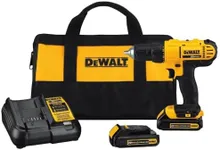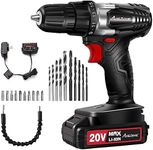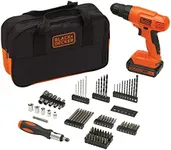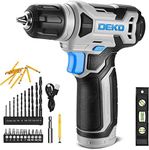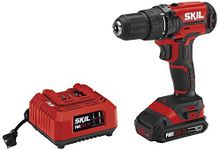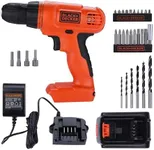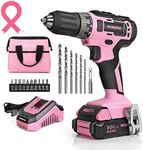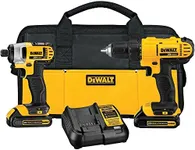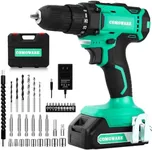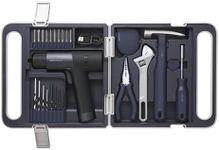Buying Guide for the Best Drill Machines
Choosing the right drill machine can make a significant difference in your DIY projects or professional work. It's important to understand the key specifications and features to ensure you pick a model that suits your needs. Consider the type of work you'll be doing, the materials you'll be drilling into, and how often you'll use the drill. Here are some key specs to help you make an informed decision.PowerPower in drill machines is usually measured in watts or volts. Higher power means the drill can handle tougher materials and more demanding tasks. For light household tasks, a drill with lower power (around 500-700 watts or 12-18 volts) is sufficient. For heavy-duty work, such as drilling into concrete or metal, you might need a drill with higher power (above 700 watts or 18-24 volts). Consider the type of projects you'll be working on to determine the right power level for you.
SpeedSpeed is measured in revolutions per minute (RPM). Drills with higher RPM can drill faster and are better for softer materials like wood. Lower RPM drills are better for harder materials like metal or masonry. Variable speed settings allow you to adjust the speed based on the material and task, providing more control. If you need versatility, look for a drill with multiple speed settings.
Chuck SizeThe chuck size determines the maximum diameter of the drill bit that can be used. Common sizes are 3/8 inch and 1/2 inch. A larger chuck size allows for bigger drill bits, which is useful for heavy-duty tasks. For general household use, a 3/8 inch chuck is usually sufficient. If you plan to do more intensive work, consider a drill with a 1/2 inch chuck.
Battery TypeCordless drills are powered by batteries, and the type of battery can affect performance and convenience. Lithium-ion batteries are popular because they are lightweight, have a longer lifespan, and provide consistent power. Nickel-cadmium batteries are heavier and have a shorter lifespan but are generally cheaper. If you need a drill for frequent use, a lithium-ion battery is a better choice. For occasional use, a nickel-cadmium battery might be sufficient.
TorqueTorque is the twisting force that the drill can apply. Higher torque is needed for drilling into harder materials. Adjustable torque settings allow you to control the force applied, which is useful for different tasks. For general use, moderate torque is usually enough. If you need to drill into tough materials like metal or masonry, look for a drill with higher torque.
WeightThe weight of the drill can affect comfort and ease of use, especially for extended periods. Lighter drills are easier to handle and reduce fatigue, making them ideal for household tasks. Heavier drills are often more powerful and durable, suitable for professional or heavy-duty use. Consider how long you'll be using the drill and the type of tasks to determine the right weight for you.
Additional FeaturesSome drills come with additional features like built-in lights, ergonomic handles, and multiple attachments. Built-in lights can help illuminate your work area, ergonomic handles improve comfort, and attachments can increase versatility. Think about the specific needs of your projects and whether these features would be beneficial for you.
